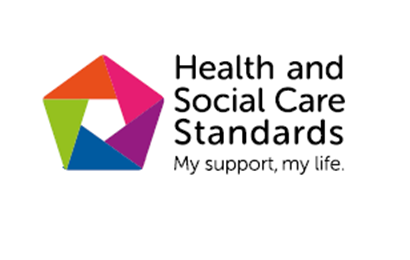
Older People
Reshaping Care for Older People
In March 2010, Reshaping Care for Older People: A Programme for Change 2011-2021 set out the Scottish Government's vision and immediate actions for reshaping the care and support of older people in Scotland.
The programme aims to improve the quality and outcomes of current models of care, while developing services in a sustainable way that addresses current demographic and funding pressures.
The policy goal for Reshaping Care for Older People (RCOP) is "to optimise the independence and wellbeing of older people at home or in a homely setting." It is noted that this will require a "substantial shift in focus of care from institutional settings to care at home – because it is what people want and provides better value for money."
Public Audit Committee report
In June 2014, the Scottish Parliament's Public Audit Committee published a report on RCOP. The report follows the Auditor General for Scotland and Accounts Commission publication 'Reshaping care for older people' which assessed progress three years into the 10 year programme.
The Committee report notes the "significant long term challenge" of shifting the balance of care and makes a number of recommendations, including:
- Information on the costs of providing care for older people and how that care is delivered must be well understood.
- The Scottish Government should provide information on what measures the RCOP outcomes framework will report on, and against what criteria or baseline activity the success of the RCOP policy will be assessed in 2021.
-
Information is needed on how the Scottish Government and the Joint Improvement Team propose to address limitations in IRF data on longer term trends and spend by councils on those aged 75 or over.
The Future of Residential Care for Older People in Scotland
In 2013 the Scottish Government established a Task Force on the Future of Residential Care for Older People in Scotland, with a primary objective to "examine at a strategic level the key purpose and desired structure of residential care services fit for the aspirations and needs of future generations".
The Task Force, co-chaired by Douglas Hutchens and COSLA Health and Wellbeing Spokesperson Cllr Peter Johnson, published its final report in March 2014. The report makes 34 key recommendations for the delivery of care and support in residential settings for older people over the next 20 years, focusing on the following areas:
- Strategic outcomes and priorities
- Personalisation
- Residency, Tenancy and Tenure
- Capacity planning
- Commissioning
- Managing Risk
- Care Home Governance
- Fee structure and funding
Housing for Older People
Age, Home and Community: next phase is a refresh of the Scottish Government's strategy for providing housing and housing-related support for older people in Scotland. The strategy is designed to build on the progress made in implementing Age, home and community: a strategy for housing for Scotland's older people 2012-2021, reflecting changes to the public sector landscape since, including the formation of 31 health and social care partnerships, the introduction of self-directed support and the publication of the Fairer Scotland Action Plan.
The refreshed strategy contains 22 actions under the three principles: Right Advice, Right Home and Right Support, "recognising the inter-connection and links to other policies across Government, notably health and social care, equalities, social security and transport". Actions include:
- We will work with local authorities, health and social care partnerships and other stakeholders to ensure the positive connections between health, social care and housing are recognised in Local Housing Strategies, Housing Contribution Statements and local development plans, to support the delivery of suitable housing in the right place for older people in the private and public sectors.
- Scottish Government will work with stakeholders at both national and local level to improve the strategic planning, funding and delivery arrangements for adaptations.
- We will work with partners to fully embed Self-directed Support as our mainstream approach to social care.
Social isolation
In December 2018, the Scottish Government published its first national strategy to tackle social isolation and loneliness and build stronger social connections. A Connected Scotland contains actions under the four following priority areas:
- Empower communities and build shared ownership
- Promote positive attitudes and tackle stigma
- Create opportunities for people to connect
- Support an infrastructure that fosters connections
Planned actions noted in the Strategy include:
- publication of an Older People’s Framework in March 2019
- work with health and social care integration authorities to consider their role in addressing social isolation and loneliness and how best to share good practice
- a National Implementation Plan to embed self-directed support in social care nationally and locally
- pilot innovative housing solutions for older people, testing intergenerational and other co-living arrangements to meet housing needs and reduce social isolation and loneliness.
Useful Links
Further reading
- Long-term care in an ageing society
- Substance use and older people
- Family caregiving in the new normal
(Ebooks may require authentication)
Related Policy
Browse other policy developments
Eating and drinking well in care: good practice guidance for older people
Good practice guidance with information on older people's dietary needs and related food and fluid requirements
Supporting people's wellbeing
All resources take an improvement and person-centred approach. They focus on supporting people to stay active, connected, and doing things that matter to them, regardless of their health or age.
Health and Social Care Standards
The Health and Social Care Standards set out what we should expect when using health, social care or social work services in Scotland
Related resources
Browse the following libraries for related resources
Latest adult and health bulletin
A weekly bulletin produced by our policy team providing an update on the key developments in adult social care and health.











